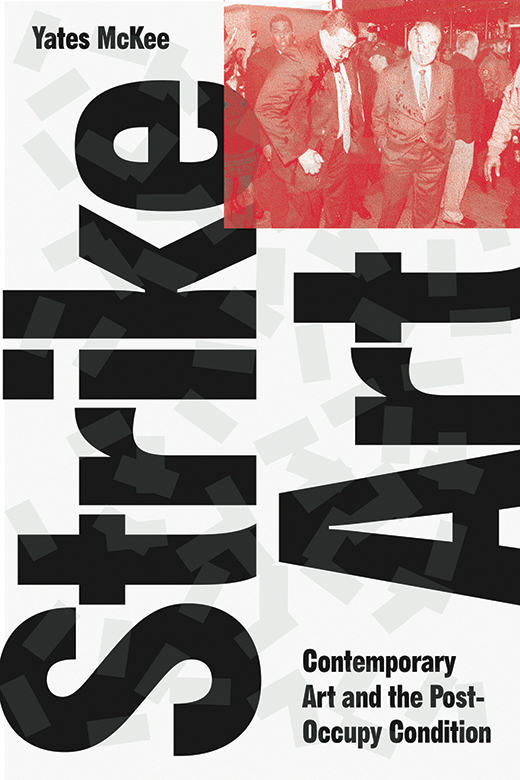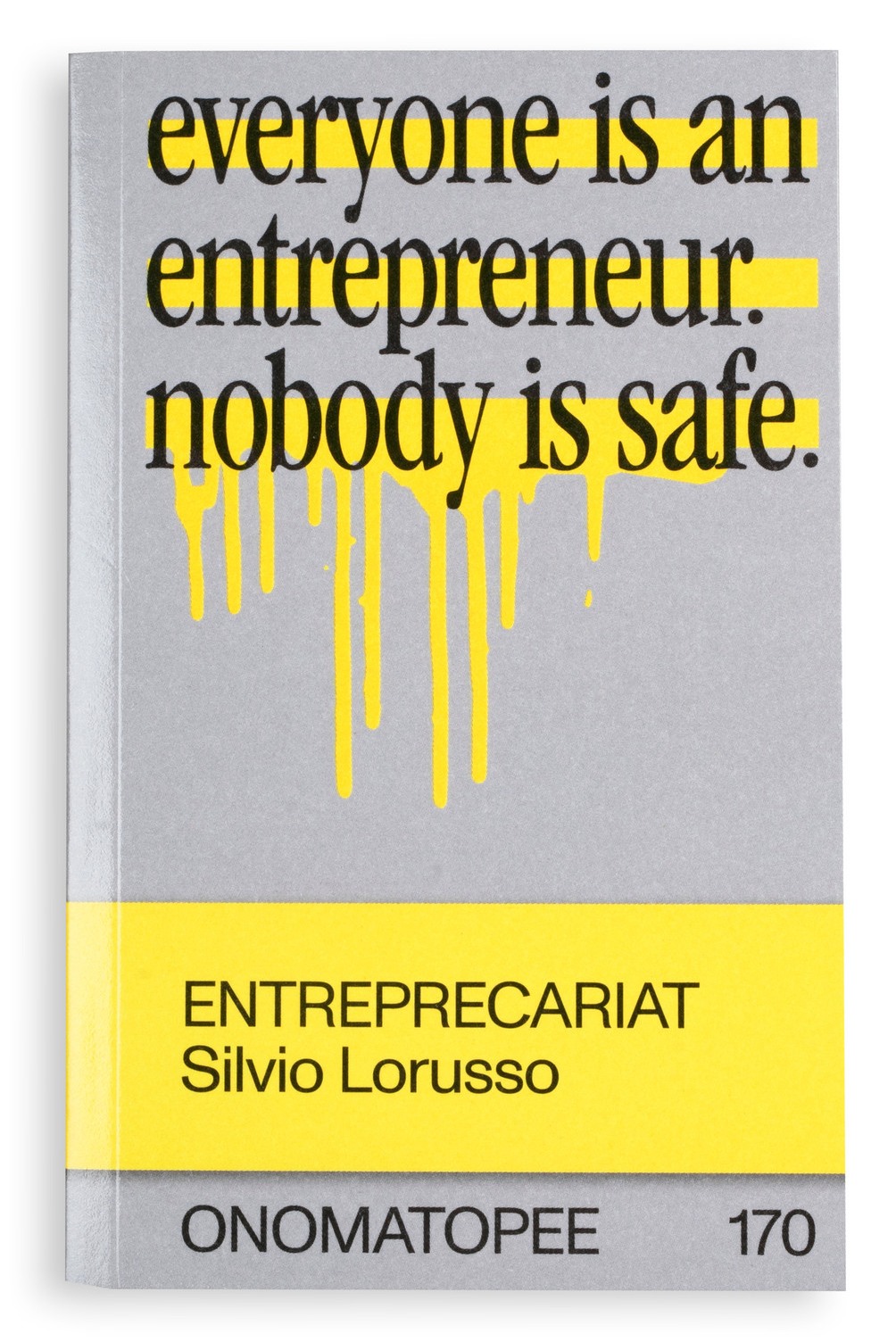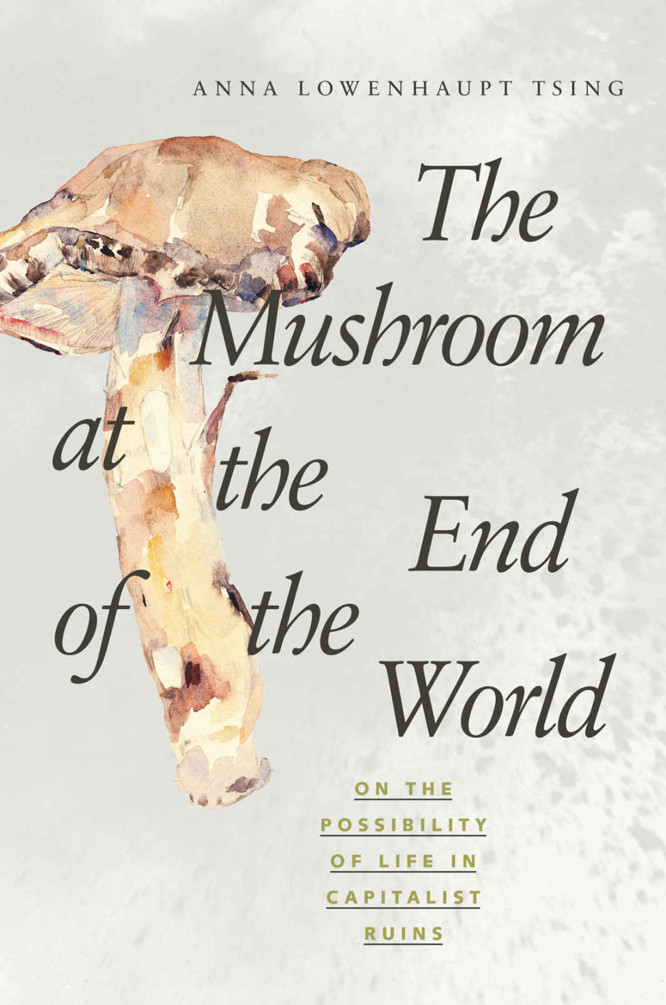Yates McKee: Strike Art: Contemporary Art and the Post-Occupy Condition (2016)
Filed under book | Tags: · aesthetics, anarchism, art, art system, black lives matter, commons, contemporary art, debt, direct action, gentrification, housing, new york, occupy movement, precarity, protest, situationists, social movements, spectacle

“The collision of activism and contemporary art, from the Seattle protests to Occupy and beyond
What is the relation of art to the practice of radical politics today? Strike Art explores this question through the historical lens of Occupy, an event that had artists at its core. Precarious, indebted, and radicalized, artists redirected their creativity from servicing the artworld into an expanded field of organizing in order to construct of a new—if internally fraught—political imaginary set off against the common enemy of the 1%. In the process, they called the bluff of a contemporary art system torn between ideals of radical critique, on the one hand, and an increasing proximity to Wall Street on the other—oftentimes directly targeting major art institutions themselves as sites of action.
Tracking the work of groups including MTL, Not an Alternative, the Illuminator, the Rolling Jubilee, and G.U.L.F, Strike Art shows how Occupy ushered in a new era of artistically-oriented direct action that continues to ramify far beyond the initial act of occupation itself into ongoing struggles surrounding labor, debt, and climate justice, concluding with a consideration of the overlaps between such work and the aesthetic practices of the Black Lives Matter movement.
Art after Occupy, McKee suggests, contains great potentials of imagination and action for a renewed left project that are still only beginning to ripen, at once shaking up and taking flight from the art system as we know it.”
Publisher Verso Books, London and New York, Feb 2016
ISBN 9781784781880, 1784781886
296 pages
Reviews: Marc James Léger (Marx & Philosophy, 2016), Philipp Kleinmichel (Radical Philosophy, 2018), Paloma Checa-Gismero (Field, 2016), John Ayscough (Visual Culture in Britain, 2017), Kristin Gecan (Chicago Review, 2016).
Discussion: Gregory Sholette, a.o. (e-flux supercommunity, 2016).
Book launch
EPUB (6 MB)
Comment (0)Silvio Lorusso: Entreprecariat: Everyone Is an Entrepreneur Nobody Is Safe (2018–) [IT, EN]
Filed under book | Tags: · capitalism, design, entrepreneurship, labour, platform, precariat, precarity, work

“Entrepreneur or precarious worker? These are the terms of a cognitive dissonance that turns everyone’s life into a shaky project in perennial start-up phase. Silvio Lorusso guides us through the entreprecariat, a world where change is natural and healthy, whatever it may bring. A world populated by motivational posters, productivity tools, mobile offices and self-help techniques. A world in which a mix of entrepreneurial ideology and widespread precarity is what regulates professional social media, online marketplaces for self-employment and crowdfunding platforms for personal needs. The result? A life in permanent beta, with sometimes tragic implications.”
Italian edition
With a foreword by Geert Lovink and an afterword by Raffaele Alberto Ventura
Publisher Krisis Publishing, Brescia, 2018
ISBN 9788894402902, 8894402908
223 pages
English edition
Translated by Isobel Butters
Publisher Onomatopee, Eindhoven, 2019
Creative Commons BY-NC 4.0 License
ISBN 9789493148161, 9493148165
257 pages
Interviews with author: Walter Marocchi (2019), Floor van Luijk (Metropolis M, 2020).
Reviews: Marco Petroni (Artribune, 2019), Tiziano Bonini (cheFare, 2019), Sandro Moiso (Carmilla, 2019), Giulio Gonella (Volume, 2020), Alessandro Ludovico (Neural, 2020).
Commentary: Nicola Bozzi (Digimag, 2017, EN).
Author
Publisher (IT)
Publisher (EN)
WorldCat (IT)
WorldCat (EN)
Entreprecariat – Siamo tutti imprenditori. Nessuno è al sicuro (Italian, 2018, 9 MB)
Entreprecariat: Everyone Is an Entrepreneur Nobody Is Safe (English, trans. Isobel Butters, 2019, 7 MB, added on 2020-5-12)
Anna Lowenhaupt Tsing: The Mushroom at the End of the World: On the Possibility of Life in Capitalist Ruins (2015)
Filed under book | Tags: · anthropology, bioculture, capitalism, collaboration, ethnography, forest, multispecies, mushrooms, precarity

“Matsutake is the most valuable mushroom in the world—and a weed that grows in human-disturbed forests across the northern hemisphere. Through its ability to nurture trees, matsutake helps forests to grow in daunting places. It is also an edible delicacy in Japan, where it sometimes commands astronomical prices. In all its contradictions, matsutake offers insights into areas far beyond just mushrooms and addresses a crucial question: what manages to live in the ruins we have made?
A tale of diversity within our damaged landscapes, The Mushroom at the End of the World follows one of the strangest commodity chains of our times to explore the unexpected corners of capitalism. Here, we witness the varied and peculiar worlds of matsutake commerce: the worlds of Japanese gourmets, capitalist traders, Hmong jungle fighters, industrial forests, Yi Chinese goat herders, Finnish nature guides, and more. These companions also lead us into fungal ecologies and forest histories to better understand the promise of cohabitation in a time of massive human destruction.
By investigating one of the world’s most sought-after fungi, The Mushroom at the End of the World presents an original examination into the relation between capitalist destruction and collaborative survival within multispecies landscapes, the prerequisite for continuing life on earth.”
Publisher Princeton University Press, Princeton, 2015
ISBN 0691162751, 9780691162751
xii+331 pages
Reviews: Stefan Helmreich (Am Ethnologist, 2016), Eleana J. Kim (Current Anthropology, 2016), Emily Yates-Doerr (Medicine Anthropology Theory, 2016), James P. Verinis (Culture, Agriculture, Food and Environment, 2016), PD Smith (The Guardian, 2017), Joshua A. Bell (Anthropological Q, 2017), William E. O’Brien (AAG Review of Books, 2018), Jason Cons (J Asian Studies, 2016), Jim Igoe (Am Anthropologist, 2016), Eugene N. Anderson (Ethnobiology Letters, 2015), Justine Williams (Transforming Anthropology, 2016), Brandon Bodenstein (Anthropology and Humanism, 2017), Hjorleifur Jonsson (Asia Pacific J Anthropology, 2017), Danya Glabau (J Cultural Economy, 2017), Carmen Victor (Culture Machine, 2017), Sian Sullivan (Dialogues in Human Geography, 2018), Frédérique Aït-Touati (Critique, 2019, FR), Bruno Latour (n.d.).
Comment (1)
